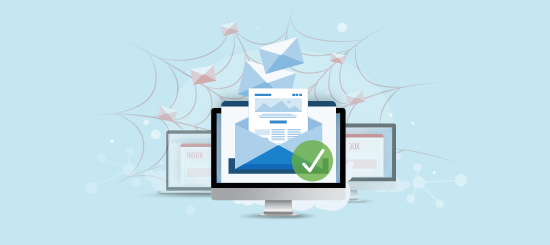While Excel spreadsheets are incredibly useful for many tasks, they come second as an option for effectively managing your customer data. The winning alternative? A CRM system.
A CRM (Customer Relationship Management) system is a technology that is used to manage current and potential customer data. They are used to support sales management and can usually be integrated with email marketing platforms, so communications to contacts and leads becomes seamless.
As your database grows, it is important to start considering the use of a CRM system, as a simple Excel spreadsheet just won’t cut it anymore.
In this blog, we will delve into the benefits of using CRM systems over spreadsheets to hopefully give you the push you need to make the change.
Centralised Data
One of the benefits of using a CRM system is that all your data is stored centrally. This means you don’t have to tirelessly search through multiple sheets to find information, giving you more time to focus on more important tasks. Having your data centrally stored also means that all employees using the system will have the same up-to-date information, reducing the need to constantly cross reference to check everyone’s records are up to date.
Email Marketing Integration
Unlike with spreadsheets, you are able integrate email marketing platforms with CRM systems, making it possible for you to send personalised emails to both current and prospective customers. Not only does this make the supplier-consumer relationship more personal, but it means communication efforts are enhanced. Advanced integrations will also allow you to pull across your marketing results through to your CRM, meaning you can more easily analyse opens, clicks etc.
Team Work
A good CRM is designed for effective team work. As mentioned previously, having all data stored in one central area in a CRM system means that teams across departments can more easily access the same, up-to-date data. In addition to this, tasks can be shared among colleagues. A task could be something as simple as “Colleague A will call Lead B today”. By collaborating in this way, teams are able to work more efficiently, selling more together.
Reminders
A spreadsheet cannot tell you who you should be calling each day, when your meetings are or if you forgot to complete a task last week. A CRM system has this functionality – it can proactively remind you what you need to do each day, meaning you can more efficiently stay on top of your workload.
Data Analysis
A CRM is able to provide you with vital insights into your sales/management/business activity such as sales conversions, leads by stage and current versus potential profit figures.
These insights can help you better refine and redesign business flows, make smarter selling decisions and generally work in a more effective style. More advanced CRM’s will allow you to visually view all the above data too, making it possible to more easily present the data to management.
Accountability
Unlike a spreadsheet, a CRM system can provide accountability as you can make sure all colleagues are completing their follow ups, sending emails and calling leads. A spreadsheet is unable to show you dynamically if an email has been sent or a prospect has been called with user date and time stamps.
Customisation
Every business has different requirements and CRM systems specialise in being able to customise the way you view your data, regardless of the size or industry of your business. Excel spreadsheets on the other hand cannot really be customised to the same extent.
Web Based
Unlike spreadsheets that are stored locally or on a shared drive, CRM systems are web based. This means that you can access your data from any electronic device that has internet connection. So, whether you are working from home or are on the go, a CRM system will allow you to access your lead and contact data.
Advanced systems will also allow admin users to restrict user access based on IP’s to cater for security.
Backups
We have all been in that scenario where we thought we had deleted a very important document. If all of your data is stored in a single spreadsheet, the likeliness of this scenario materialising is quite high. This means you should proactively and manually take backups, adding more unnecessary tasks to your workload. With a CRM system, your data is automatically backed up by your supplier. Therefore, in case of emergency, your data can be restored.
All that said, it is clear to see that a CRM system is a much more practicable, sustainable and efficient data management tool when compared to spreadsheets.
Here at Campaignmaster, we have developed our very own CRM system that encapsulates every advantage discussed in this article along with so many others such as being 100% UK based, customer-development driven, suitable for both novice/advanced users and fully integrated with our email marketing platform CMAdvantage.
If you would like to switch to a CRM system, discuss how it can benefit your company or simply would like to integrate your current email marketing platform, please email info@campaignmaster.co.uk.









